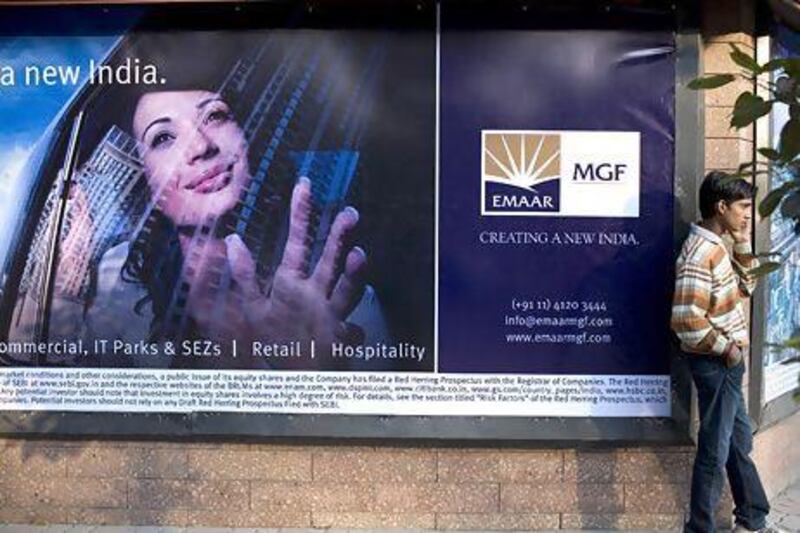Another hurdle for Emaar MGF emerged this week, as UAE companies continue to find operating in India a challenging affair.
Emaar MGF, a joint venture between Emaar in Dubai and MGF in India, has faced a series of issues in India since it entered the market in 2005, including those surrounding its work on the Commonwealth Games village in New Delhi.
On Tuesday, India's government claimed that Emaar MGF had violated rules by making investments of 86 billion rupees (Dh5.57bn) in farmland using foreign funds.
The company protested that it had "not received any official communication in this regard".
Analysts highlight that India is a complex place for foreign companies to do business and say that some regulations should be changed as the country actively tries to attract more foreign direct investment to boost its slowing economy. "As we progress on reforms, Indian laws will have to be business friendly, and therefore, restrictions on labour hiring and firing, restrictions on sourcing, restrictions on financing, on ownership and repatriation have to be increasingly removed to provide a free and fair business environment," said Kamal Sen, the chief executive of Cogitaas, a strategy and planning consultancy.
"This should be the direction of economic reforms leading to more global participation. Accordingly laws will have to change and become more liberal, if India has to have vibrant capital flows, which are so necessary for financing gaping current account deficits."
Etisalat, the UAE telco, found itself embroiled in a scandal in India. The Supreme Court cancelled 122 second-generation, or 2G, licences in February last year, including that of Etisalat's joint venture in India, Etisalat DB. The licences were issued to companies in 2008 but were revoked because they were allegedly sold at cut-price rates.
Etisalat became entangled in events when it bought a 45 per cent stake in Swan Telecom in 2009 for US$900 million, with the joint venture later being renamed Etisalat DB. Swan Telecom had paid more than 15 billion rupees for the licence in 2008. Etisalat had no involvement in the application for the licence.
Etisalat last year reported an impairment charge of Dh3.04bn as a result of the cancellation. It opted to leave the market and recently said that it was not looking to return to India. The company filed proceedings to the Bombay High Court last March for the winding up of its telecom business in India, which is an ongoing process.
Meanwhile, Dubai's Tecom, which is building the SmartCity business park project in Kerala, has encountered a series of problems including land disputes and opposition.
Winning the contract to build the 2010 Commonwealth Games village should have been a dream project for Emaar MGF, which had only been operating in the market for two years when it secured the deal. But, the project created a host of problems for the company, as it was blamed by the government for alleged poor quality construction work and delays and Emaar MGF ended up in a legal dispute with the Delhi Development Authority. Emaar MGF has struggled with plans to launch an initial public offering on the Bombay Stock Exchange. It scrapped a series of IPO attempts because of weak market sentiment and regulatory hurdles.
Foreign companies, however, should endeavour to understand the laws that are in place to avoid falling foul of them, Mr Sen said.
"All issues of corporate governance, and best standards of integrity and fair practices should be followed by all companies, with full compliance with all regulators," he said. "This is true for any company, foreign or Indian."





